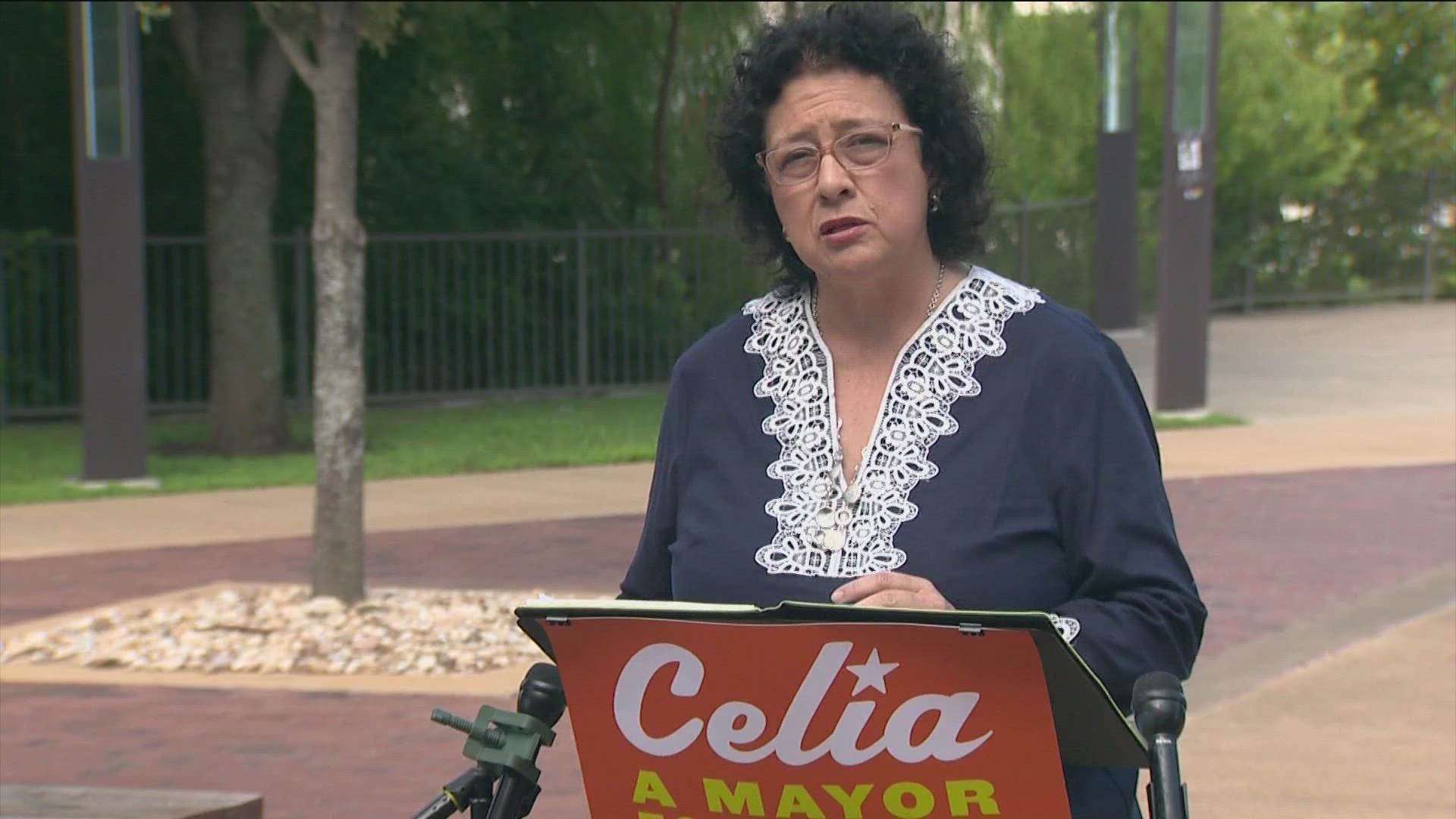AUSTIN, Texas — Mayoral candidate and State Rep. Celia Israel announced her transportation plan to help Austin's continued growth while continuing to connect communities.
Israel's plan focuses mainly on the concept of mobility and ease of movement within the city. With this theme, she has four main points:
- Demanding a better deal and vision on I-35 expansion from the Texas Department of Transportation
- Delivering on the message of Project Connect
- Reduce accidents, deaths and promote safety
- Innovation and embracing the future of the city
The I-35 plan from TxDOT includes expanding the roadway by 28 miles for the section that starts in Round Rock and ends in Buda. Additionally, this will increase the number of lanes in either direction.
Israel's first point in her plan is to demand a better plan that "embrace[s] a vision that moves lanes underground, caps the highway with an urban park, and creates meaningful connections between East and West Austin, and to multi-modal transit," Israel's campaign website reads.
Alternatively, apposing candidate Phil Campero Brual states that the public transportation system has "struggled to keep up with the rapidly increasing population" while the "poorly planned infrastructure" has led to the departments being "spread thin." Further details regarding Campero Brual's plans have not been released yet.
Israel says her second point, delivering on Project Connect, can be done by voting for the funding to make the light rail a reality within Austin. Her website further explains that Austin needs to "create bus lanes and build protected bike lanes and sidewalks so everyone has a safe, affordable and pollution-free option of moving around Austin."
Another one of Israel's opponents, Kirk Watson, wants a way to ensure the money put into the massive projects like Project Connect are being efficiently executed. One of his main pillars in regards to transportation is to "create the Transportation Construction Command Center" which would allow for an "integrated approach to managing [Austin's] major mobility projects," Watson's website states.
The third pillar of Israel's transportation plan is to reduce the amount of injuries and deaths on Austin's roadways while also ensuring residents' safety. One of the main focuses is to embrace Vision Zero while also investing in "local multimodal infrastructure improvements targeted through the Austin Strategic Mobility Plan" to lower the crash and death rates in the city and state.
All of Israel's opposing candidates – including not previously mentioned Gary S. Spellman Jennifer Virden and Anthony Bradshaw – all agree on increasing the amount of safety within the city while also lowering the death rate that can be seen on the roadways.
Israel's last point covers the future of transportation in Austin, as well as partnering with local resources like CapMetro to allow "reduced and free rides for senior citizens, teachers, first responders or individuals living below 150% of the poverty level," the last bullet points summarized.
For a comprehensive view of every candidate running for office in Austin before Nov. 8, reference the city council website here.
PEOPLE ARE ALSO READING:

